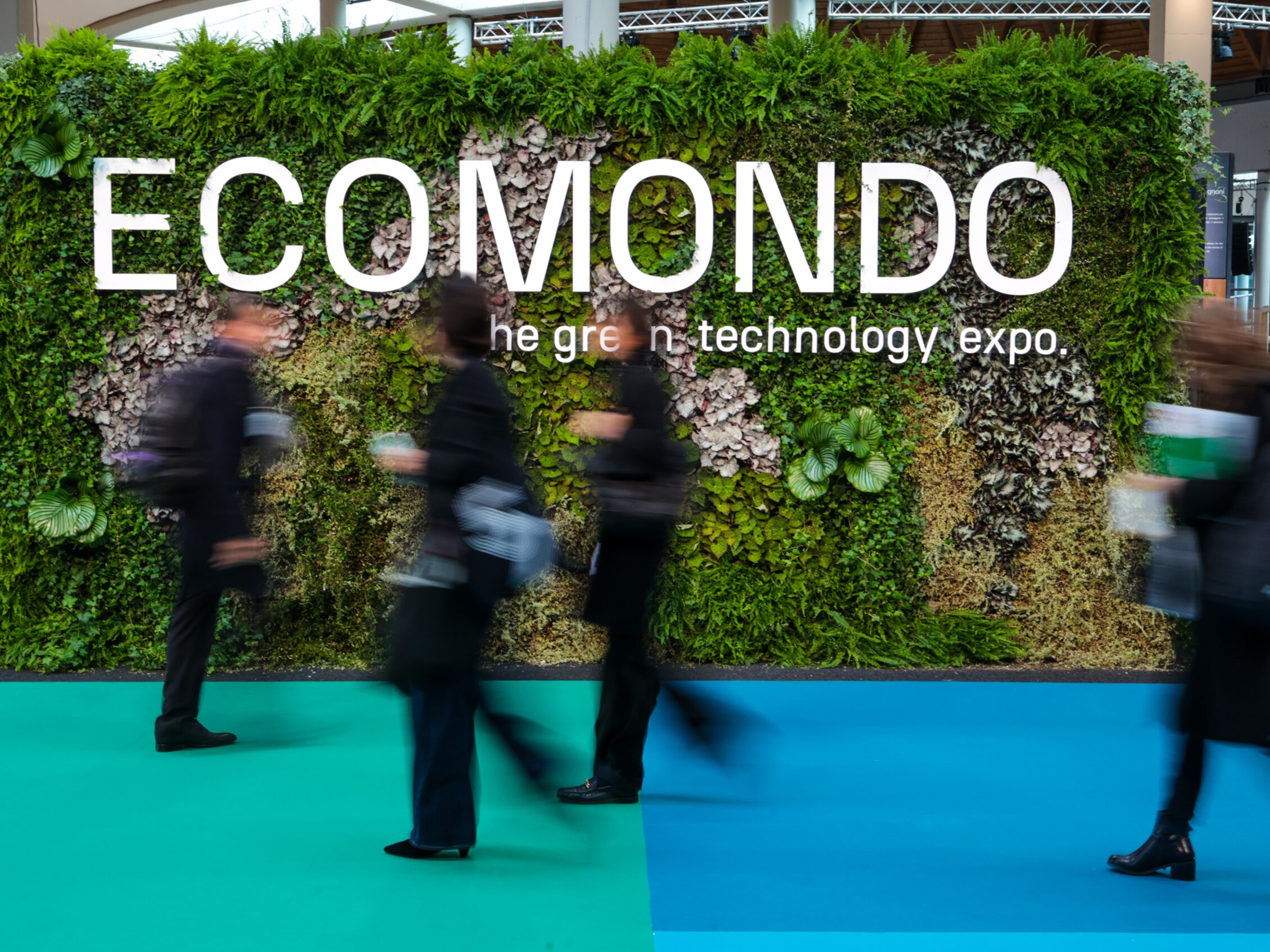4-7 NOVEMBRE 2025 | RIMINI EXPO CENTRE
ECOMONDO
INNOVAZIONI, NETWORKING, CONFERENZE
Entra nell'ecosistema internazionale della transizione ecologica
Ecomondo, evento internazionale annuale leader nei settori della green and circular economy, è il punto di incontro tra industrie, stakeholder, policy maker, opinion leader, mondo della ricerca e delle istituzioni e mette a sistema gli elementi chiave che definiscono le strategie di sviluppo della politica ambientale dell’Unione Europea.
0
Partecipanti
0
Paesi coinvolti
0 MQ
Expo lordi
0
Brand espositori
È arrivato il tuo momento!
La biglietteria è aperta: registrati e ottieni il tuo ticket di accesso a Ecomondo.
Apri la porta al mondo dell'economia circolare e lasciati ispirare dalle nuove tecnologie green che supporteranno i tuoi sviluppi sostenibili.
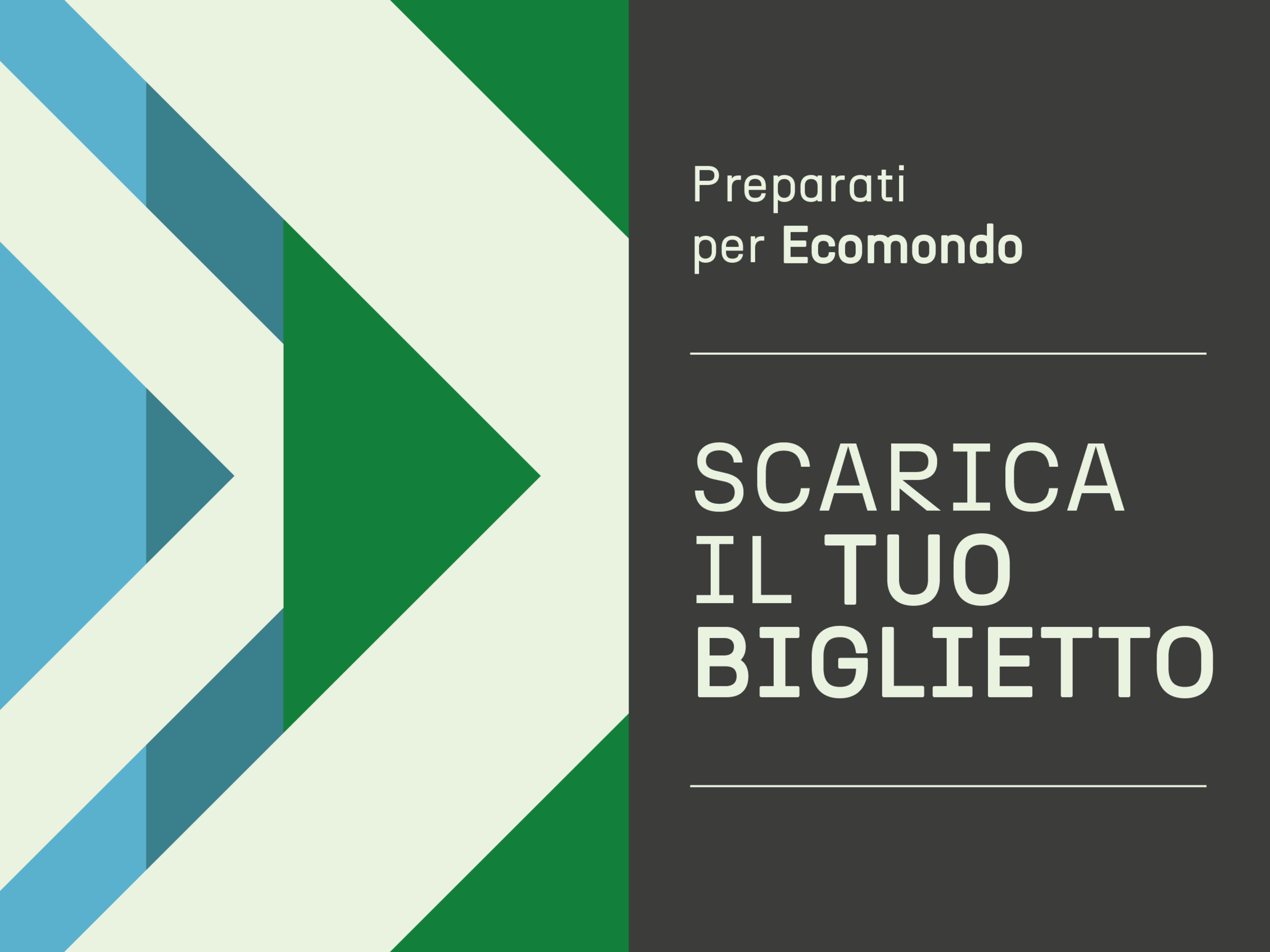
DIFFUSIONE E PROMOZIONE DELLA TRANSIZIONE ECOLOGICA
Raccontiamo il nostro impegno qui e nel mondo
La transizione ecologica non è solo una sfida, ma una priorità per un futuro sostenibile e più equo.
Come funziona Ecomondo? Innovazioni, approfondimenti, novità e, soprattutto, incontri speciali con persone che stanno plasmando il futuro con le loro idee.
Il nostro impegno prosegue tutto l'anno nella condivisione di best pratice e nuove tecnologie sostenibili.
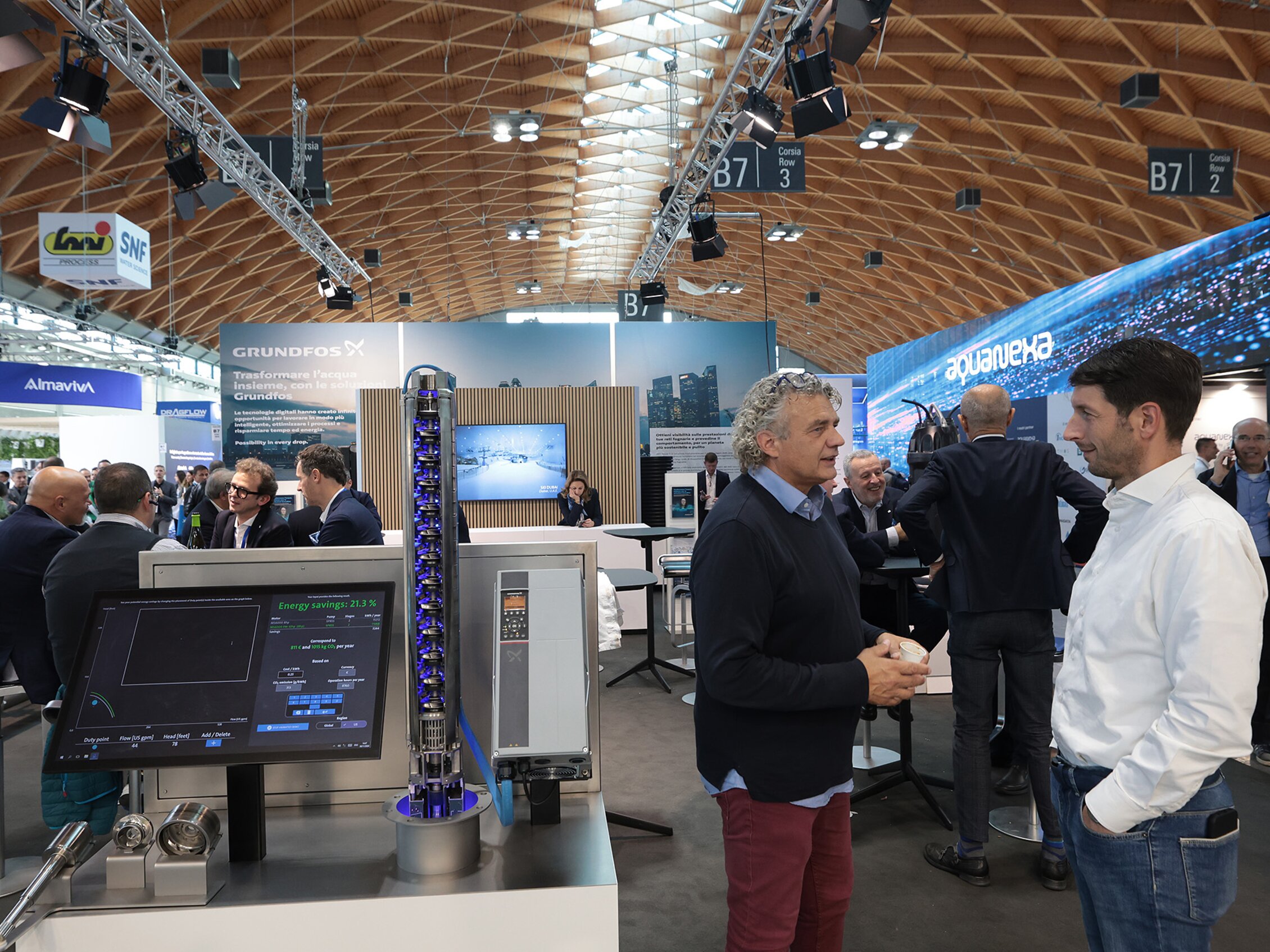

SETTORI E DISTRETTI
Una fiera unica nel suo genere

PALINSESTO CONVEGNISTICO
Oltre 550 ore di eventi

CATALOGO ESPOSITORI
Scopri chi incontrerai in fiera

GLOBAL NETWORK
Il tuo business in Messico e Cina
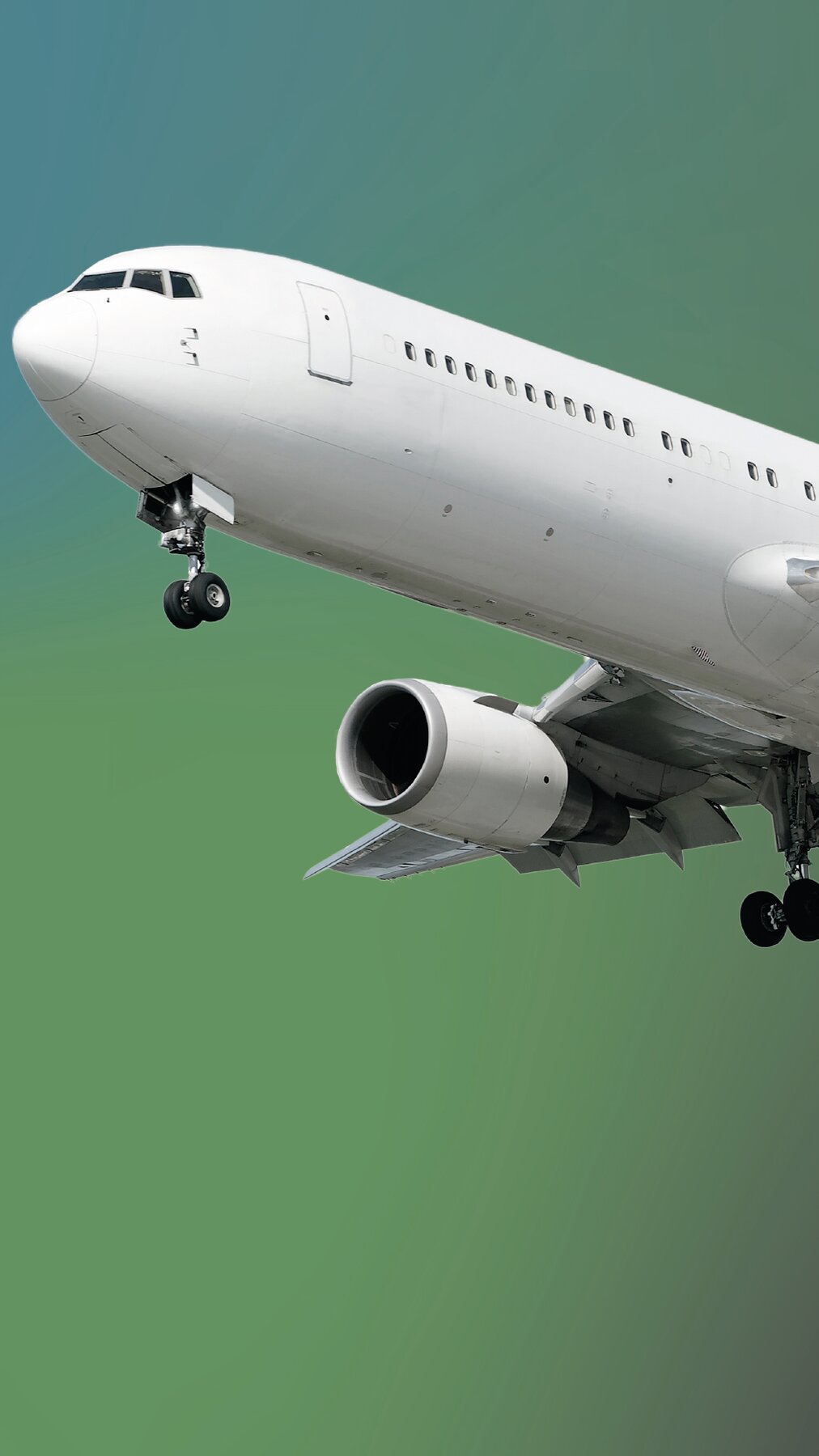
Vola direttamente a Ecomondo!
Da Roma e Monaco di Baviera a Rimini: diretto, comodo e veloce dal 4 al 7 Novembre 2025
RICERCA E INNOVAZIONE PER TUTTI
Anche tu puoi partecipare a Ecomondo
Sei un ricercatore? Hai una start-up o un progetto innovativo di sviluppo sostenibile?
La manifestazione apre le porte alla partecipazione a tutti gli esperti della transizione ecologica.
Scorri e scopri come partecipare.
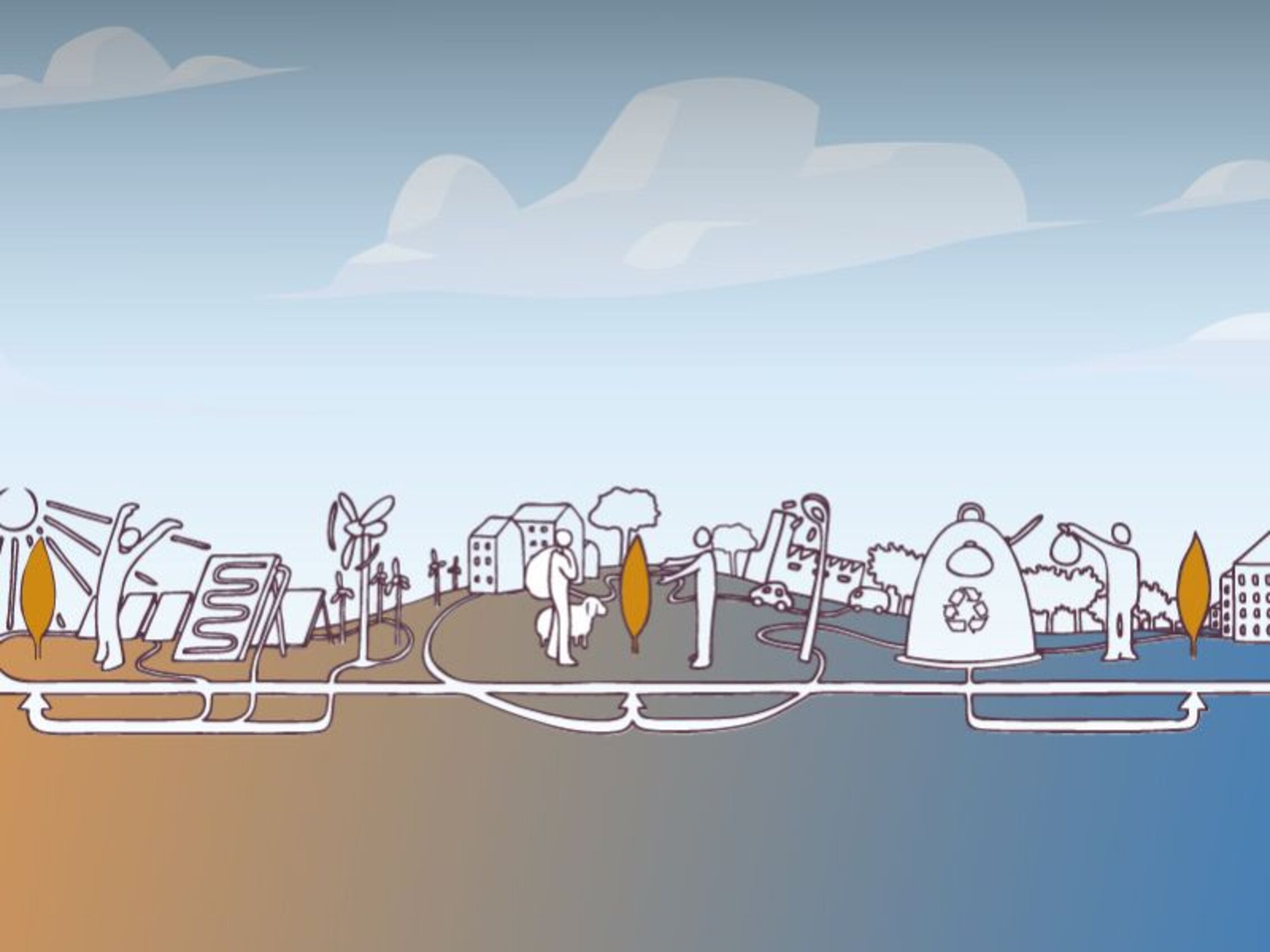
PREMIO PER LO SVILUPPO SOSTENIBILE
Scopri il regolamento e iscriviti!
Organizzato da


